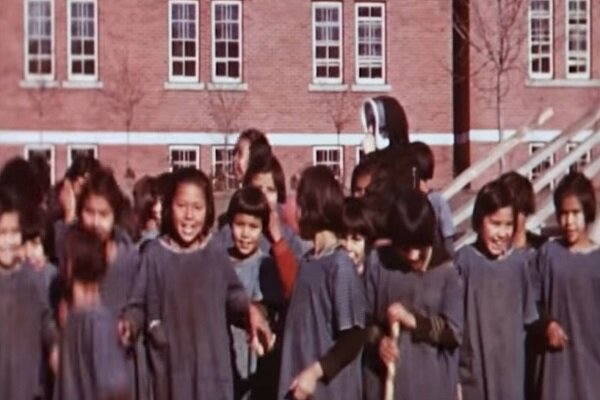In a press release on Friday, the British Columbia Assembly of First Nations said it is grieving the location of 215 children.
"It is unknown how many children died and disappeared while attending residential schools in Canada with few known locations of their resting sites," the assembly said. "Indigenous peoples continue to deal and cope with the past genocidal policies and entrenched colonial system. The investigation at this burial site will continue and it is expected that the number of child graves will increase."
"It is expected that thousands of unmarked graves exist across Canada of indigenous children who died at residential schools. Families who never saw their children return home experience never-ending grief and continue to live with deep scars," added the assembly in the release, Xinhua reported.
On Thursday, the Tk'emlups te Secwepemc First Nation in Kamloops city in British Columbia province announced that ground-penetrating radar uncovered the remains of 215 children at the Kamloops Indian Residential School.
Chief Rosanne Casimir of the Tk'emlups te Secwepemc First Nation said on Thursday that the remains were confirmed last weekend with the help of a ground-penetrating radar specialist.
Among the 215 children, some were three years old. The children were assumed to have been lost or runaway in Canada's residential school system.
Casimir called the discovery an "unthinkable loss that was spoken about but never documented at the Kamloops Indian Residential School."
The residential school was one of the largest residential schools from 1890 until 1969 when the federal government took over the school's administration before its closing in 1978.
"The finding of these graves refreshes the grief and loss for all First Nations in British Columbia as we remember the fear, horror and desperation experienced by families and communities as their children were forcibly taken away to residential schools," said Regional Chief Terry Teegee of British Columbia Assembly of First Nations.
"It was a dreadful time of forced assimilation and genocide inflicted by the colonial Canadian state for over a hundred years. Finding these gravesites is urgent work as many families continue to mourn the loss of their missing children and seek information about their fates," he added.
Perry Bellegarde, the national chief of the Assembly of First Nations, called the news painful. "While it is not new to find graves at former residential schools in Canada, it's always crushing to have that chapter's wounds exposed."
MA/XINHUA


























Your Comment